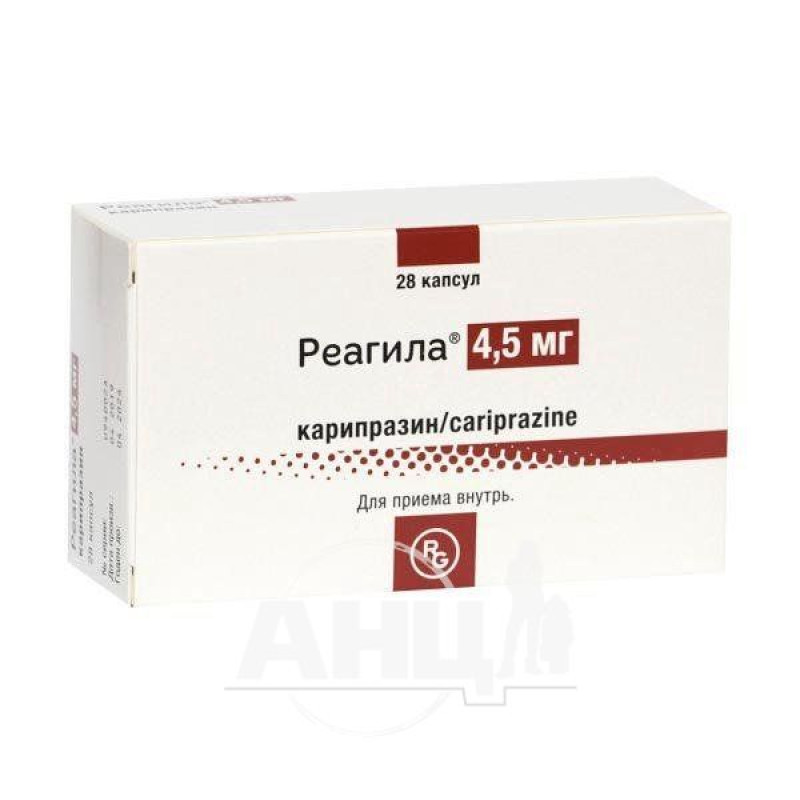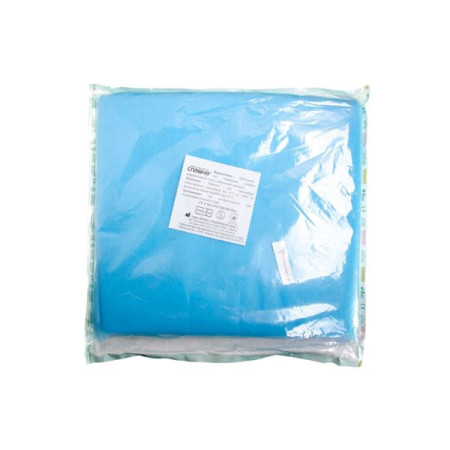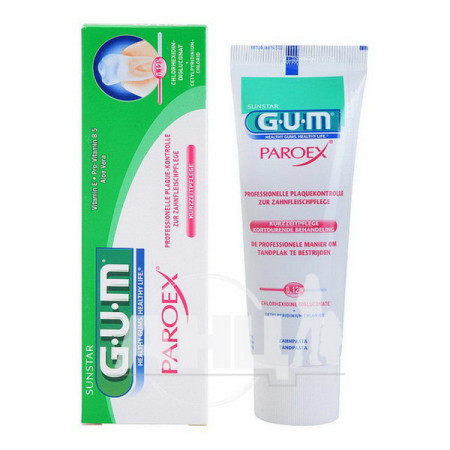Reagila capsules 4.5 mg No. 28

Reagila is used to treat schizophrenia in adult patients.
Composition
Active ingredient: cariprazine.
1 capsule contains 4.5 mg of cariprazine;
Contraindication
Hypersensitivity to the active substance or to any of the excipients.
Concomitant use of a strong or moderate CYP3A4 inhibitor.
Method of application
The recommended starting dose of cariprazine is 1.5 mg once daily. The dose may then be increased slowly in 1.5 mg increments to a maximum of 6 mg/day as needed. The lowest effective dose should be maintained according to the physician's clinical judgment. Due to the long half-life of cariprazine and its active metabolites, changes in dosage will not be fully reflected in plasma for several weeks. Patients should be monitored for adverse reactions and response to treatment for several weeks after initiation of cariprazine and after any dose changes.
Application features
Pregnant women
The use of the drug Reag is not recommended during pregnancy, as well as in women of childbearing age who do not use effective contraception. After stopping treatment with cariprazine due to the slow elimination of the active components, contraceptive methods should be used for at least 10 weeks.
Children
The safety and efficacy of cariprazine in children (under 18 years of age) have not been established. No data available.
Drivers
Cariprazine has minor or moderate influence on the ability of patients to drive and use machines. Patients should be cautioned against operating dangerous machinery, including driving, until they are certain that the drug does not adversely affect them.
Overdose
An accidental acute overdose (48 mg/day) has been reported in one patient. This patient experienced orthostasis and sedation. The patient fully recovered the same day.
Side effects
The most commonly reported adverse reactions with cariprazine in the dose range (1.5-6 mg) were akathisia (19%) and parkinsonism (17.5%). Most reactions were mild or moderate in severity.
Adverse drug reactions (ADRs) based on pooled data from a study of cariprazine treatment of schizophrenia are presented by organ system.
Interaction
The metabolism of cariprazine and its major active metabolites, desmethyl-cariprazine (DCAR) and didesmethyl-cariprazine (DDCAR), is predominantly mediated by CYP3A4 with minimal involvement of CYP2D6.
Ketoconazole, a strong CYP3A4 inhibitor, increases plasma levels of total cariprazine (sum of cariprazine and its active metabolites) by 2-fold during short-term (4 days) co-administration, when unbound or unbound + bound components are considered.
Due to the long half-life of the active components of cariprazine, further increases in total cariprazine plasma concentrations can be expected with longer combined administration. Therefore, the combination of cariprazine with strong or moderate CYP3A4 inhibitors (e.g. boceprevir, clarithromycin, cobicistat, indinavir, itraconazole, ketoconazole, nefazodone, nelfinavir, posaconazole, ritonavir, saquinavir, telaprevir, telithromycin, voriconazole, diltiazem, erythromycin, fluconazole, verapamil) is contraindicated. Grapefruit juice should be avoided.
Storage conditions
Store in the original packaging at a temperature not exceeding 25 ° C. Keep out of the reach of children.
Shelf life - 5 years.
There are no reviews for this product.
There are no reviews for this product, be the first to leave your review.
No questions about this product, be the first and ask your question.













